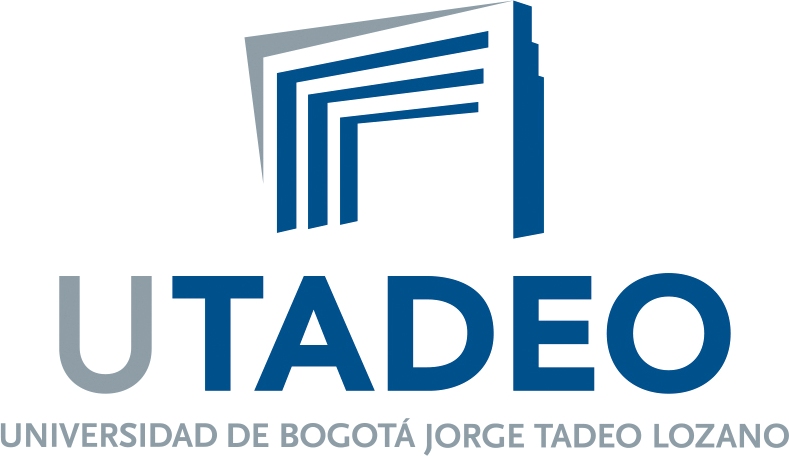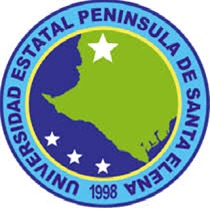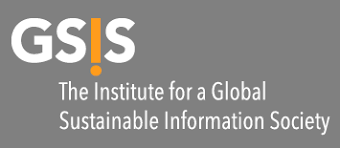
Second International Conference on Applied Informatics
6 to 9 November 2019, Madrid, Spain
Building up a Global Sustainable Information Society

Keynote Speakers for ICAI 2019

Luis de-la-Fuente-Valentín
Luis de-la-Fuente-Valentín holds a PhD in Telematics Engineering, obtained at Universidad Carlos III de Madrid. He currently teachs at Universidad Internacional de La Rioja (UNIR), where he is also director of the Data Driven Science research group. He has participated in European and national funded projects related to the field of Technology Enhanced Learning and Analytics. His research areas include supporting systems for instructional desing, with the proposal of a generic service integration layer for the IMS-LD specification, and the use of such services to improve the workflow in complex learning settings. He lead the A4Learning Project that uses Learning Anatytics techniques to support the teacher in tutoring tasks by providing information of the estimated student progress.
Keynote: Learning Analytics: the use of Big Data in the classroom to improve the teaching/learning experience
Abstract: The rise of Big Data and Artificial Intelligence techniques has impacted many áreas, and education is not out of the scope of such techonolgy. One result is the Learning Analytics field of study, whose aim is to provide methods and tools for the better understanding and improvement of the teaching/learning process. This talk will present the most relevant challenges in the way to adopt Learning Analytics as a efficient tool in the actual classroom, as well as some examples and ideas that show the potential of this research field.

Ixent Galpin
Ixent Galpin is full profesor at the Department of Engineering of Universidad de Bogota Jorge Tadeo Lozano, Colombia. He is head of the Masters in Data Engineering and Analytics programme and teaches Advanced Database Technologies at postgraduate level. Ixent holds a Ph.D. and in Computer Science, and a M.Sc. in Advanced Computer Science with Distinction, from the University of Manchester. He worked as Research Associate in the Information Management Group at the University of Manchester in the field of sensor network query processing. Previously, he worked as software engineer at Thomson Reuters developing financial data feeds. His research interests include data integration, usability issues in data management, recommender systems, and distributed query processing.
Keynote: Usability Issues in Data Science
Abstract: Traditionally, data management benchmarks focus on measures such a throughput, pricing, energy consumption or scalability. Usability tends to be an afterthought. However, every data management system needs to interact with humans, and in order to be effective it is imperative that user requirements are suitably captured. In this talk, I will survey recent developments in this area and outline future research challenges.

Wolfgang Hofkirchner
Wolfgang Hofkirchner is retired associate professor of technology assessment at the Technische Universität Wien, Austria. He was professor of Internet and society at the University of Salzburg, Austria. He has been visiting professor at the Universitat Oberta Catalunya, Spain; Universidad de León, Spain; and Universidade Federal da Bahía, Brazil. Wolfgang holds a PhD in Political Science and Psychology from the University of Salzburg. He is elected member of the Leibniz Society of Scholars in Berlin, of the International Academy of Systems and Cybernetic Sciences in Brussels, and distinguished researcher of the International Center for Philosophy of Information at the Xi’an Jiaotong University, Xi’an. He has expertise in ICTs and Society, Science of Information, and Complexity Thinking.
Keynote: Designing for a Global Sustainable Information Society
Abstract: The Information Age is at the same time an Age of Global Challenges that might cause the extermination of mankind. However, Information Society can provide the means for coping with those challenges. A Global Sustainable Information Society represents a framework of conditions that guarantee thriving and surviving instead of running the risk of a self-inflicted breakdown of society. Information Technology needs to be questioned not only with regard to its efficacy and efficiency as a means but also, if not foremost, with regard to the justification of the diverse ends to which it serves as a means. Informatisation, digitalisation, automatisation need to be harnessed to the purpose of building up a “good society” and not of designing things we really don’t need.

Mario Pérez-Montoro
Dr. Mario Pérez-Montoro is a Full Professor in the Faculty of Information and Media at University of Barcelona (Spain), where he researches and lectures in the areas of interaction design and information visualization. He is currently the Director of the PhD in Information and Communication Program at this University. He holds a PhD in Philosophy and Education from the University of Barcelona, Spain, and a Master in Information Management and Systems from the Polytechnic University of Catalonia, Spain. He studied at the Istituto di Discipline della Comunicazione at the University of Bologna (Italy), he has been a professor at different universities in Spain (Complutense University of Madrid, Open University of Catalonia, and Autonomous University of Barcelona), and he has been visiting scholar at the Center for the Study of Language and Information (CSLI) at Stanford University (California, USA) and at the School of Information at UC Berkeley (California, USA).
Keynote: Information Visualization as Knowledge Analysis
Abstract: An important part of a researcher’s tasks focuses on searching, obtaining and refining a set of data that allow analyzing a phenomenon and finding the patterns that govern it. But the data does not speak for themselves. They need to be analyzed using methodological tools that allow conclusions to be drawn. Among these methodologies, the visualization of information stands out as a complementary strategy for the analysis of the phenomena that involve data. Information Visualization is the discipline that deals with the visual representation of propositional content by using charts, graphs and diagrams in order to facilitate the apprehension, interpretation, transformation and communication of those contents through these visual representations. For the correct use of information visualization as knowledge analysis, it is necessary to know the logical and perceptual principles that guarantee its explanatory efficiency.

Florencia Pollo-Cattaneo
Florencia Pollo-Cattaneo has been professor of Computer Science - Artificial Intelligence within the Degree Program in Information Systems Engineering, since 1996, at the National Technological University - Regional School of Buenos Aires (Argentina). She is currently also the director of the GEMIS research group and the Master in Information Systems Engineering at the same university. She has been an Information Systems Engineer since 1992, then specialized in the construction of expert systems at the Technological Institute of Buenos Aires (ITBA). She also obtained a Masters Degree in Software Engineering from the Technological Institute of Buenos Aires (ITBA) and in the Polytechnic University of Madrid (Spain). Finally, she graduated as Doctor of Computer Science at the National University of La Plata (Argentina).She has published over 60 academic and industrial papers in noteworthy peer-reviewed publications. She has participated in numerous national and foreign congresses, courses and workshops, as a panellist and organizer. Her concern for the socio-cultural projection of the discipline has earned her the recognition of her opinion as a reference in the specialized scientific press.
Keynote: Artificial Intelligence for the Solution of Real Problems
Abstract: Given the success obtained by the application of Artificial Intelligence (AI) in large corporations such as Google, Facebook and Microsoft (to offer new and better services), other companies are imitating them and investing more and more in research and development within that discipline. This situation has led institutions to highlight the importance of the AI in the near future. It should be noted that these benefits are not limited to the existence of 'thinking computers', but are about software systems that exhibit some degree of intelligent behavior. Thanks to the latest advances in Machine Learning and Artificial Intelligence, it is easy to let imagination run wild and think about how incredible the future will be. Automatic cars, much more precise medical diagnoses, online purchases completely automated through intelligent chatbots. But, what do we really know about it? We all have our own idea of Artificial Intelligence conceived from news, books, movies or science fiction series. However, this has also given rise to certain myths that need to be dismantled in order to understand what Artificial Intelligence really is and what it really means. In this context, the aim of the talk is to provide a complete review of the evolution of AI and its main applications, as well as the myths and realities of what will come with it in the future.

Modestos Stavrakis
Modestos Stavrakis is currently a Lecturer in Interaction Design at the Department of Product and Systems Design Engineering at the University of the Aegean, Greece, and Adjunct Professor in Hellenic Open University. He holds a PhD in Design from the same university, an MSc in Computer Aided Graphical Technology Applications and a BA (first class honours) in Creative Visualisation from the University of Teesside (UK). Over the past few years he has conducted research in the fields of Interaction Design and User Experience, HCI, computer aided collaborative design, web information systems, computer assistive technologies and distance/e-learning.
Keynote: Designing interactive technologies for smart learning environments
Abstract: Interactivity plays an important role in the way we experience information in the era of ICTs. The same applies in educational contexts. The way we design learning environments based on interactive systems and technologies heavily influence the experience of both the educator and the learner. Digital technologies and recent developments in the design of interactive systems alter the way we understand and perform the learning and teaching processes in various educational contexts (classroom, online, virtual and augmented environments). This speech will discuss the most current developments in the area and a number of relevant challenges in designing interactive learning environments. It will outline examples and projects that show the potential of this research field, but also point a number of future research and design challenges.
Organized by
Sponsored by
2025 All rights reserved










